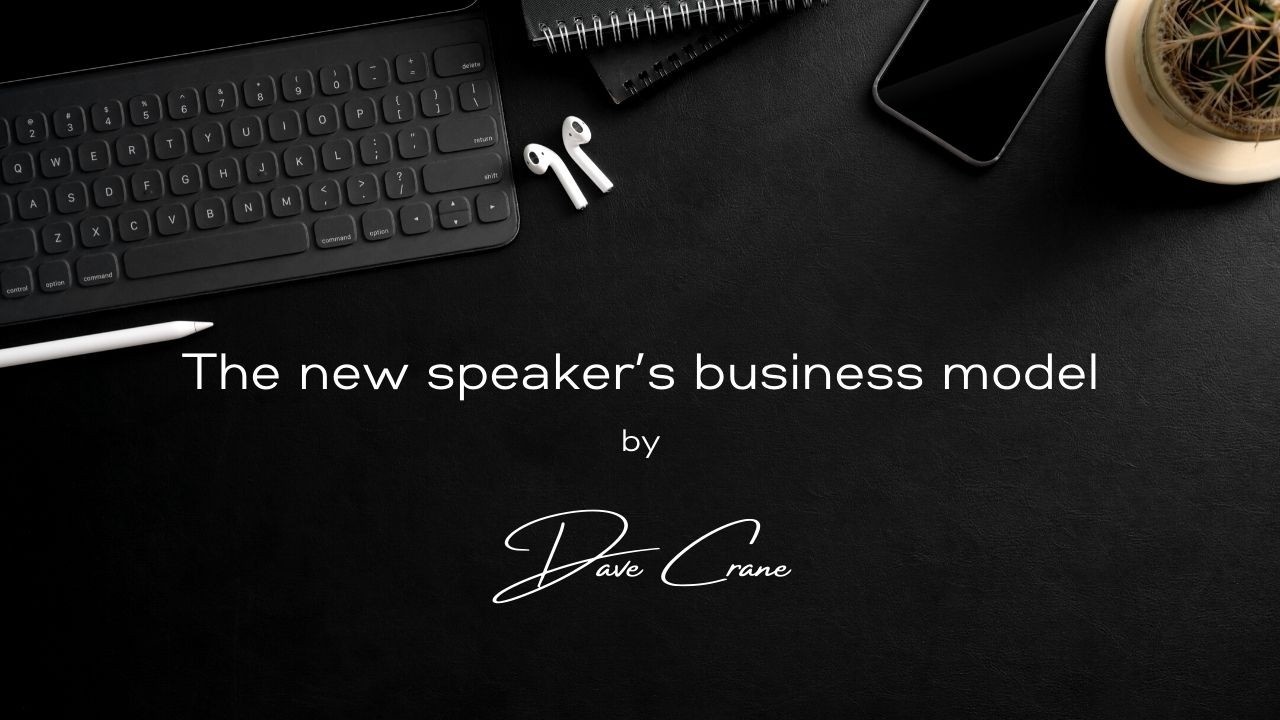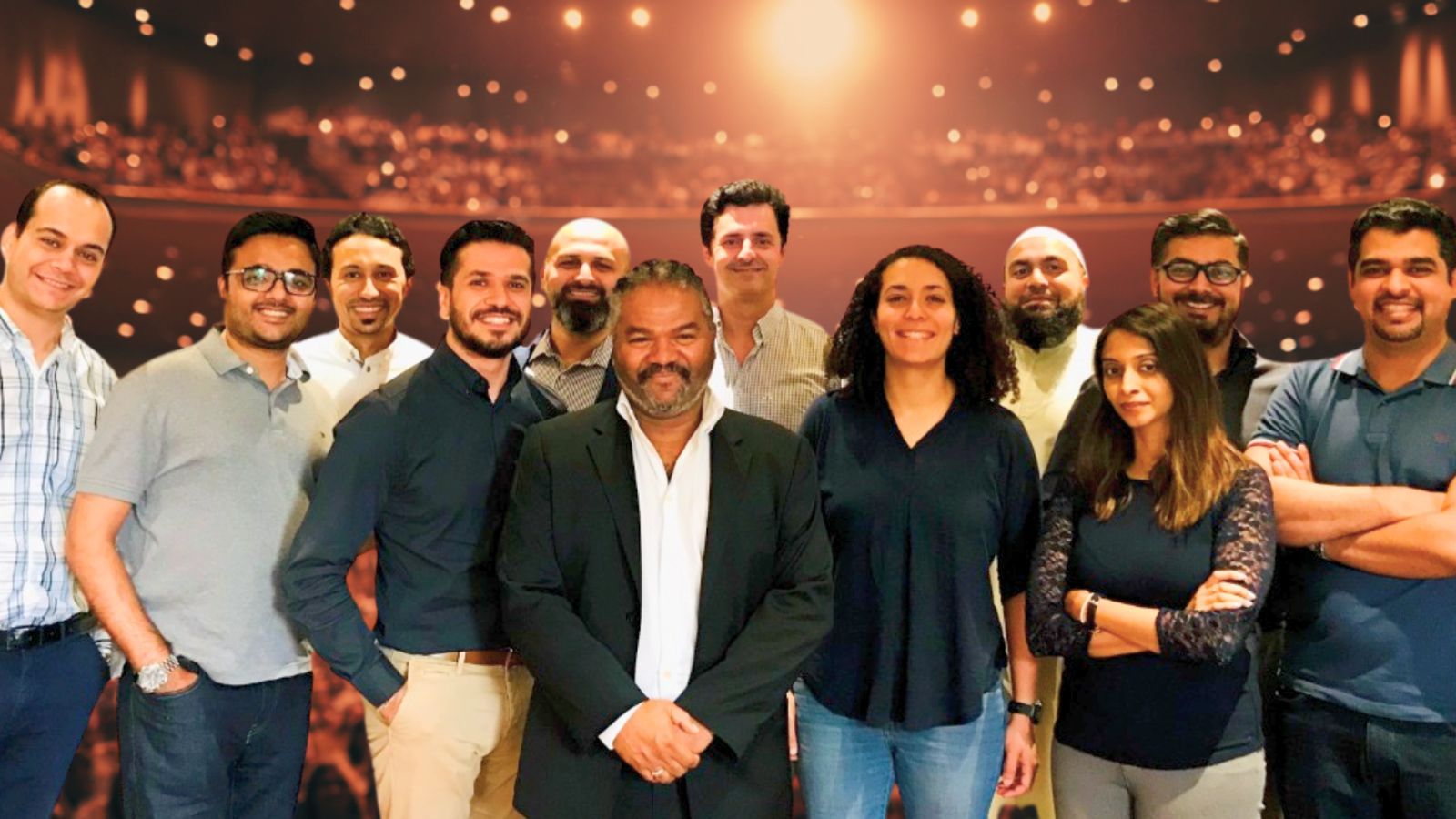
It’s all changed.
We didn’t get those 2 years to digitize ourselves after all.
Once upon a time industry experts were seen as great public speakers. They headlined conferences, appeared as authorities on CNN and Fox News (or the local equivalent) and wrote books and articles that made others talk about their genius, their savvy and their huge influence.
Some utilised social media and produced blogs.
Others had podcasts or guested on enough of them to ensure regular appearances on anybody’s business Spotify or iTunes account. This tried and trusted business ecosystem guaranteed that if ‘You do it right, they will find you’ – and they did.
Events managers, conference directors, PR agents and special interest groups could use Google to look for an expert speaker and something would pop up.
That’s usually how you got the call.
Then an email, a WhatsApp and a follow-up call to your busy mobile later and the booking was made.
What would have possibly gone wrong?

The ultimate disruptor circa 2020.
It’s all so different now.
Everything that was working well previously, has had to reinvent, recalculate, reinvigorate and reinstate itself to still be seen as important to the current food chain.
If you were previously, a leading light at Uber and enjoyed talking about disrupting the taxi industry, you may no longer still have a job.
Covid-19 disrupted the car.
Especially the crowd who shared riding in them.
If you were exclusively dressing the biggest stars from Hollywood and Bollywood for their red-carpet gala dinners, what can you possibly talk about when nobody is organising any of those gigs?
The Coronavirus has hit every speaker in every event for every industry and every gathering across the globe.
A trillion dollar industry has just been put on hold pending further notice.
So is the day of the speaker now dead?
Yes. And no.
Yes, for some time (read this as 12 to 24 months), it will be impossible to gather big groups together again who will network, share ideas and make connections whilst enjoying the hospitality of 5 star splendour at their regional industry awards.
This will put everybody involved in that event eco system in serious financial jeopardy from the venues to the staff and the signage to the security guards. They will try and come back sooner but realistically, when we finally create a happy compromise rich, socially distanced event, who can still make money from it?
Ticket prices have to be triple the old cost to now break even.
Sponsors will want to see numbers, ROI and huge attendance sheets (plus celebrity faces).
Venues will need to make sure that the cleaning and sanitation doesn’t hijack the fun.
It’s a huge mess with no end in sight.
That’s why the answer is online. 
We all used Zoom or Skype before lockdown (or at least we knew of them).
Most corporations and marketers had webinars to sell their ideas or products to invited guests who didn’t have somewhere better to go.
But now those are not just communication tools, but actual lifelines for EVERY business spokesperson and decision maker on the planet.
The digital stagecraft of every speaker who used to crush it on a conference stage has sadly been shown lacking throughout the last 6 months as events have gone fully digital. Project attendances of webinars can easily drop down from 1,000 at the opening of the keynote to barely double figures by the end of the same broadcast.
Why?
Because virtual presenting is NOT public speaking.
It’s a new set of skills and needs a new kind of speaker.
Consider this…
90% of the world has a real fear of public speaking and hasn’t even started trying to do Zooms anybody except maybe their work colleagues or physically distant relatives.
They have tons to learn and consequently, so do our famous speaking fraternity.
Until there is a new digital stagecraft and virtual keynote culture speaking with the old business model just won’t work.
It’s not a presentation, it’s a TV show.
A broadcast and a completely different industry.
So what can you do to start becoming more relevant on the new platforms?
If anything, think about your relevance and expertise.
Think long term consultancy rather than instant motivation.
And as for the broadcasting over just live speaking?

- Camera angles. It’s a subtle, but important fact that if somebody has their camera at the wrong angle, your audience will spend the next 20 minutes staring UP your nose.
If the view wasn’t bad enough, the subconscious feeling that someone is looking DOWN on you like a judging parent or offended teacher leaves an uphill struggle for anybody trying to bond with small talk before they start their sales pitch. - Muting. We all appreciate you have. Real family who shout, dogs that bark and neighbours who shout BUT we really don’t want to have that distraction during our board meeting. Go silent until you want to speak. It lets things run smoothly and you can always let the host know you plan to speak when they see it unmute again.
- Cameras. Have them on. If you are attending. There’s no excuse not to. What are you hiding? Dirty dishes? Your pyjamas? A body in the closet? Nominate a part of the house or at least find an angle that makes you look professional. If you can’t get a greenscreen from amazon for a hundred bucks and choose a backdrop from Google to boost your background.
- Don’t eat when zooming. Just don’t.
- Don’t read your emails whilst someone else is talking. They know. They are watching you doing it.
- Passing secret notes. Don’t send secret messages and expect the host NOT to see two people suddenly grinning for no reason. We have all snap. We can see two identical grins in a sea of bland.
- Make small talk. Not too much. Just enough to break the ice and allow the others to forget their day and instead feel in the moment with you.
- Eye to eye engagement. Try and look into the camera from time to time. It feels more personal.
- Get a webcam on a tripod. Dump the laptop’s built in camera. It makes a huge difference. The sound is better, the picture is sharper and it looks like you mean business.
- Smile. It’s the best thing in your wardrobe.
- Act like you care. We can tell. Most people who forget to smile don’t realise that’s why no-one actually likes talking to them.
Great speakers know their brand, their craft, their technology and their audience like the back of their hand.
Amateurs make unforgivable mistakes and don’t really know or care.
The next generation of virtual broadcasters will be industry icons.
They know their business, they have a small but loyal following and every time you hear them, you end up wanting more.
Want to be an industry icon? 
I can help.

P.S: I regularly get asked to write articles on my expertise for online magazines. This is written for the October 2020 issue for Authoritti5.0 .
Love our posts?
Register your details below and you will be notified of our weekly blogs!

